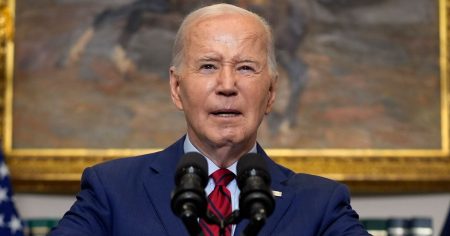Israel conducted a small and calculated strike on Iran after days of deliberation in an attempt to avoid triggering a major war. The strike shattered a taboo of direct attacks, which Tehran had broken days earlier with missile and drone attacks. Israel’s war cabinet initially approved plans for a strike inside Iranian territory following the attacks and had ruled out the most drastic response of hitting strategic targets like nuclear facilities. Pressure from the United States, Gulf partners, and the need to maintain international support led to postponing the strike multiple times.
Despite plans for a more severe response, Israel ultimately carried out a strike on an Iranian Air Force base near Isfahan. The strike appeared to target a location close to nuclear facilities to send a message of Israel’s reach without causing major damage. Iran claimed to have shot down three drones, but Israel did not comment on the incident. Various sources, including Western intelligence assessments, suggested that Israel launched drones from within Iranian territory. The strike was seen as a calibrated response to the attacks by both parties to avoid escalation.
Israeli decision-makers faced competing pressures in the aftermath of the attacks, with some advocating for an immediate response while others urged caution. The decision to hold back from broader and immediate action was influenced by discussions with U.S. President Joe Biden and the need to avoid escalation. Various Israeli officials and regional experts expressed relief at the limited and proportionate nature of the strike, which helped de-escalate tensions in the region.
Gulf countries, including Saudi Arabia and the UAE, had been concerned about the potential for a wider regional conflict and had called for maximum self-restraint to avoid escalation. Diplomatic efforts were made to relay messages to Israel to conduct a limited attack without provoking a major reprisal. Israel’s options for responding to Iran’s attacks ranged from strikes on strategic facilities to covert operations and cyber attacks, but the decision was made to carry out a measured strike to minimize casualties and damage.
The measured strike aimed to satisfy Israel’s moderates, regional neighbors, and international partners but faced criticism from hardliners in Netanyahu’s cabinet. National Security Minister Itamar Ben Gvir, a key figure in Netanyahu’s coalition, expressed dismay over the strike. Overall, the strike was seen as a de-escalatory measure in response to Iran’s attacks, signaling a desire to avoid further escalation and maintain regional stability. Diplomatic efforts continued to navigate the delicate balance of responding to provocations without triggering a major war in the region.















